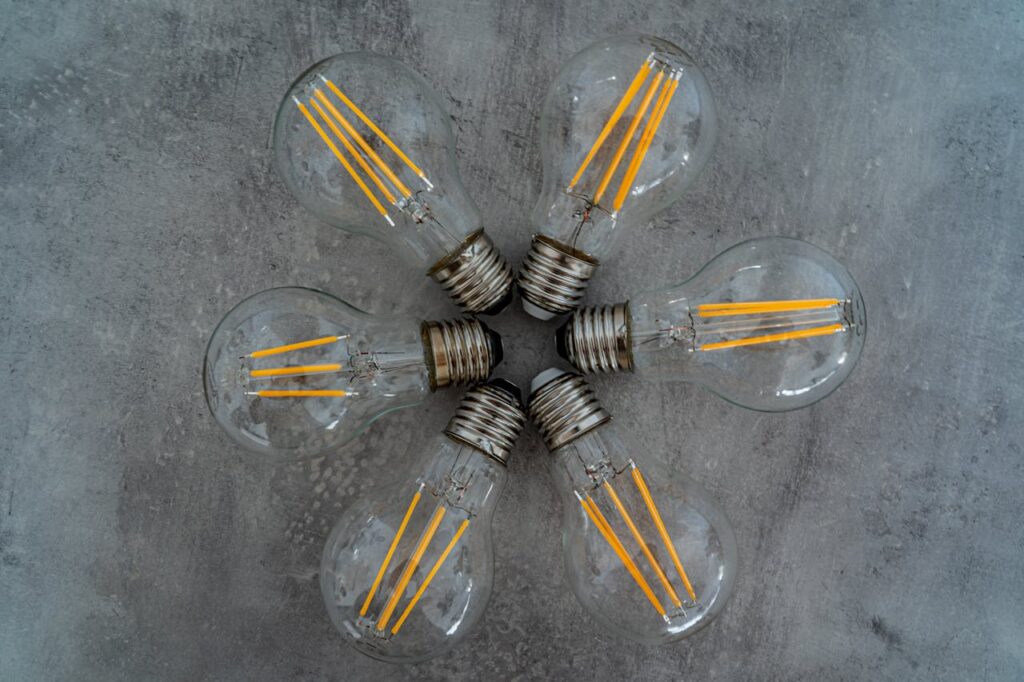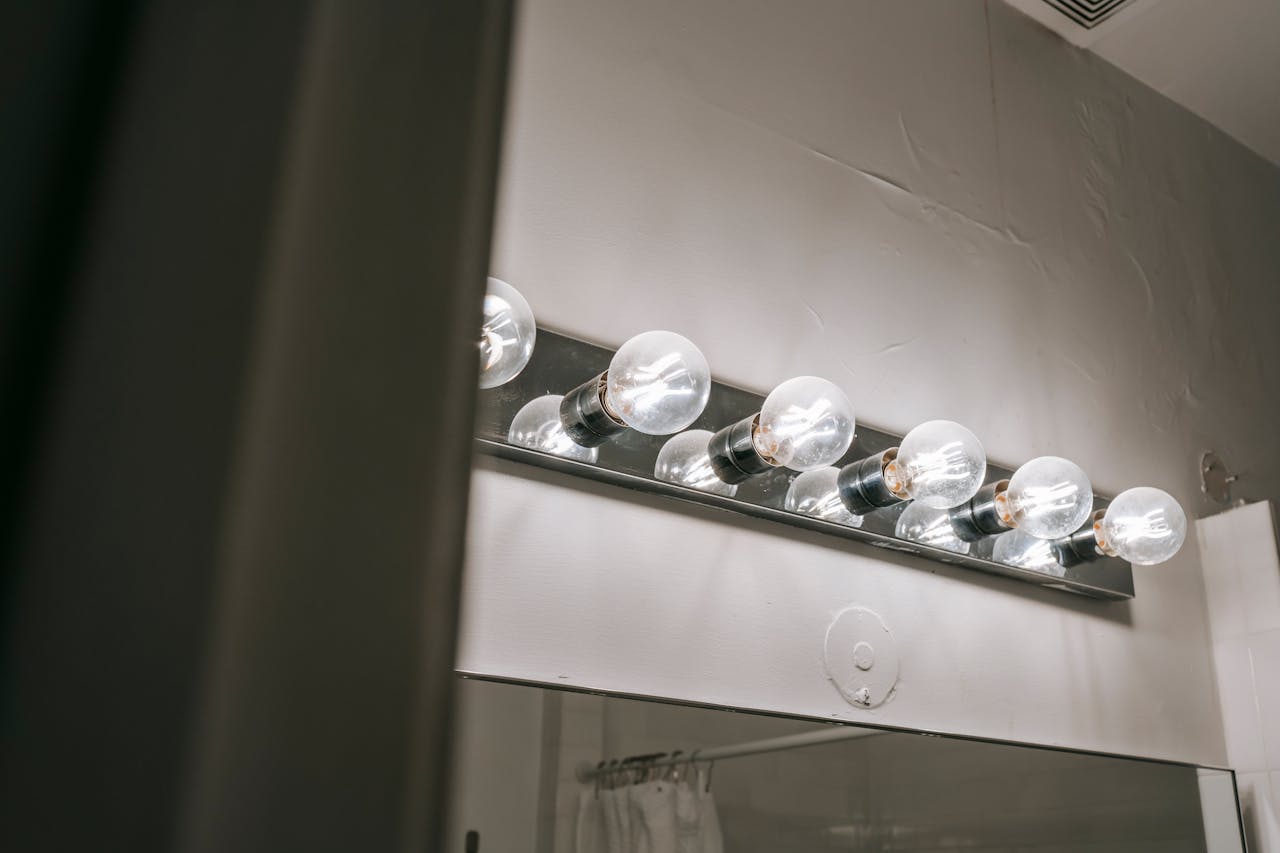Learn about Types of Halogen Light Bulbs. Discover different types of halogen light bulbs, their advantages, disadvantages, and applications in home, automotive, and business lighting.
Introduction
Halogen lamps belong to incandescent lamps, using halogen gas to extend their life span and increase brightness. They emit sharp white light and are popular in car headlights, home lights, and work lights. Halogen is preferable to incandescent bulbs mainly due to energy efficiency and compact size but great increases in heat generation and energy regulation phase them out in some places.
Types of Halogen Light Bulbs
Standard Halogen Bulbs
This kind of bulb also gives off the appearance of those incandescent types bulbs; however, they function much more productively and efficiently. It is also mostly used for household lighting, desk lamps, and pendant fixtures-white light being emitted through this little body that gives enhancements on visibility.
Reflector Halogen Bulbs
This type of bulb comes with a reflective coating, which effectively directs light and brings it to a tight spot. It can, therefore be very useful for spotlights, floodlights, and track lighting, since it defines a very intense beam for household and commercial use.
Halogen Capsule Bulbs
These little and compact kinds of bulbs are mainly meant for use in under-cabinet lighting, pendant lights, and even different medical or scientific equipment. Their size makes them ideal for many applications.

How Halogen Light Bulbs Work
Halogen bulbs essentially mimic incandescent bulbs in their working principle, but there are a few differences at the core of the invention itself. The filament of tungsten is within a very compact quartz or high-silica glass envelope, which is then filled with a halogen gas such as iodine or bromine in a halogen bulb.
The filament is electricity-passed, heating and illuminating it. When the halogen gas is in the lamp, an interaction occurs whereby some of the vaporized tungsten condenses back onto the filament, hence further contributing to the filament’s high efficiency and life.
Advantages of Halogen Light Bulbs
1. Brighter Light Output
Halogen bulbs produce bright but “natural daylight” light, which is very close to very natural conditions. They meet well for those applications that need to have very bright observations, such as lighting for automobile headlights and tasks as well as display lighting, producing great brightness but with improved contrast and sharper definition.
2. Higher Efficiency
Energy-efficient than incandescent light bulbs, halogen lights manage to save energy because they recycle their tungsten through halogen gas, allowing the filament to glow very brightly but at a lower wattage so that it can rather use even less, hence making it an energy conservation choice altogether.
3. Longer Lifespan
With the tungsten recycling process, halogen bulbs last longer compared to ordinary incandescent bulbs. This filament wears less, hence extending the useful life of halogen bulbs, which makes it much more applicable in our homes, offices, and cars.
4. Compact Design
The small halogen bulbs come in a streamlined design so that they can be used in different kinds of fixtures. They are compact and hence capable of being used in practically any kind of applicational situation: small lamps, recessed lighting, or projectors.
5. Dimmability
Halogen bulbs are fully dimmable and while not like some energy savings bulbs, permit the user to reduce brightness levels according to their needs. This makes them excellent for moods in homes, theatres, and restaurants, which have flexibility in lighting.
6. Better Color Rendering
Halogen bulbs give excellent color rendering, rendering colors much better than fluorescent lamps or LEDs. These bulbs may be used in photography, art galleries, and retail displays since they possess a high CRI making objects appear bright and natural.
Disadvantages of Halogen Light Bulbs
High Heat Emission
Halogen bulbs have an extremely high-operation temperature in which it may burn on touch. Their heating effect can also induce further, unnecessary cooling costs in the space, making them less energy-efficient in temperature-controlled situations.
Energy Consumption
An incandescent bulb that follows halogens has more efficiency and cannot reach the efficiency level of an LED or a CFL. These types of bulbs consume high power; hence, electricity bills increase, plus, consumption really makes taking this option for lighting somewhere inappropriate in terms of the environment for long-term utility.
Shorter Lifespan Compared to LEDs
Halogen bulbs offer a longer life than the old-style incandescent ones but are very much shorter compared to LEDs. The frequent replacement of the light source would cost maintenance, thus rendering it an uneconomical option for applications in long hours.
Environmental Impact
Halogen bulbs that are considered hazardous materials need to be disposed of properly, to prevent them from contaminating the environment. As opposed to LEDs which are greener, halogens are also a source of waste and subject to restrictions in certain areas under the energy efficiency act.
Fragile Construction
The sheer fragility of the glass envelope is what renders halogen bulbs so easily breakable, and they need careful attention when being worked for installations or replacement, increasing the chances that they will get damaged, limiting their usability in a high-impact environment or outside.
Common Applications of Halogen Bulbs
1. Home Lighting
Halogen bulbs are typically used in recessed downlights, pendants, and track lighting applications. They provide white light so bright that it increases the visibility making the places suitable for kitchens, living rooms, and other workstations with a greater demand on illumination in everyday activities.
2. Automotive Lighting
Halogen bulbs which emit very intense illumination fit into the headlights, fog-lights, and indicator lights of vehicles. This intensity allows very clear visibility of the road, which helps to drive safely especially during dusky or foggy hours.
3. Commercial & Retail Lighting
Halogen lamps are often the go-to choice for application in showrooms, display cases, and shop windows due to their consideration of color rendering. They allow any product to be seen and presented better, thus making them the preferred choice in retail and commercial undertakings.
4. Stage & Studio Lighting
This gives the halogen bulb a constant light level, which became a favorite requirement in stage lighting, photography, and theater. Their standard quality of reproducing the colors will surely provide bright pictures, especially on-stage performances or recordings of live performances and films.
5. Outdoor & Security Lighting
Halogen bulbs find their use in floodlights and security lights. Their high lumen output provides ample illumination of driveways, gardens, and exteriors of buildings and is now being used in applications emphasizing safety and surveillance.
Halogen vs. LED: Which is Better?
Halogens give bright, high-quality light; however, these have been displaced by the far more energy-efficient and longer-lived LED bulbs. In most instances, where low power consumption, prolonged service life, and low heat output are of utmost consideration, it is LEDs that are favored. Nevertheless, other applications where intense illumination is required, with very good color rendition, are still well served by halogen.

FAQs
Are halogen bulbs being phased out?
Yes, halogen bulbs will be banned one after another in many countries mainly due to inefficient functionality. Hence, LED alternatives are suggested because they less consume energy, last longer, and reduce harm to the environment.
Are halogen bulbs dimmable?
Yes, the majority of halogens are dimmable and can work with standard dimmers. In case you are replacing a halogen with a dimmable LED, the current dimmer should work fine.
Can I replace a halogen bulb with an LED?
Certainly! Provided that the fixture will accept an LED, then an LED can substitute for a halogen bulb. LEDs convert far more energy into light, last longer, and emit less heat than halogens.
Conclusion
Halogen light bulbs strike a pretty good compromise, especially when it comes to brightness, efficiency, and color rendering, for many applications. Their great heat output and relatively lower energy efficiency compared with LEDs have limited their usage over the years. Through continuous advancement in LED technology, they will someday be part of the old technology, although in specialized needs; they would still serve as a viable option in lighting.






